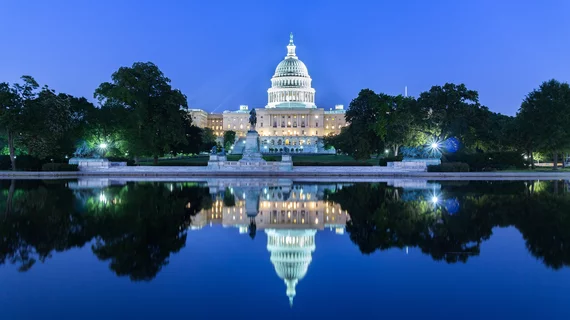Surprise medical billing ban nears finish line with inclusion in final government spending deal
U.S. lawmakers have included a ban on “surprise” medical bills from out-of-network radiologists and other providers as part of a final spending deal reached Sunday.
Democratic House and Senate leaders Nancy Pelosi and Charles Schumer revealed the news in a joint statement Dec. 20, noting the prohibition would apply to both emergency and scheduled care. Members of both parties have long grappled over addressing this issue and appear close to finalizing a fix, with approval expected Monday.
The heads of four key congressional committees first announced their No Surprises Act on Dec. 1. It would require insurers and radiologists to first attempt to negotiate a payment before having an independent arbiter move discussions along. Politico reported that the deal struck Sunday would forbid these arbiters from using Medicare and Medicaid rates in their deliberations, since they’re typically much lower than commercial reimbursement.
The American College of Radiology cited concerns last week that the earlier version of the bill included such government payment programs and worker’s comp in the independent reviewer’s consideration. Congress’ final measure also reportedly keeps providers’ billed charges out of these discussions, too.
If approved Monday, the changes will take effect in 2022, according to the New York Times.
Read more below.

